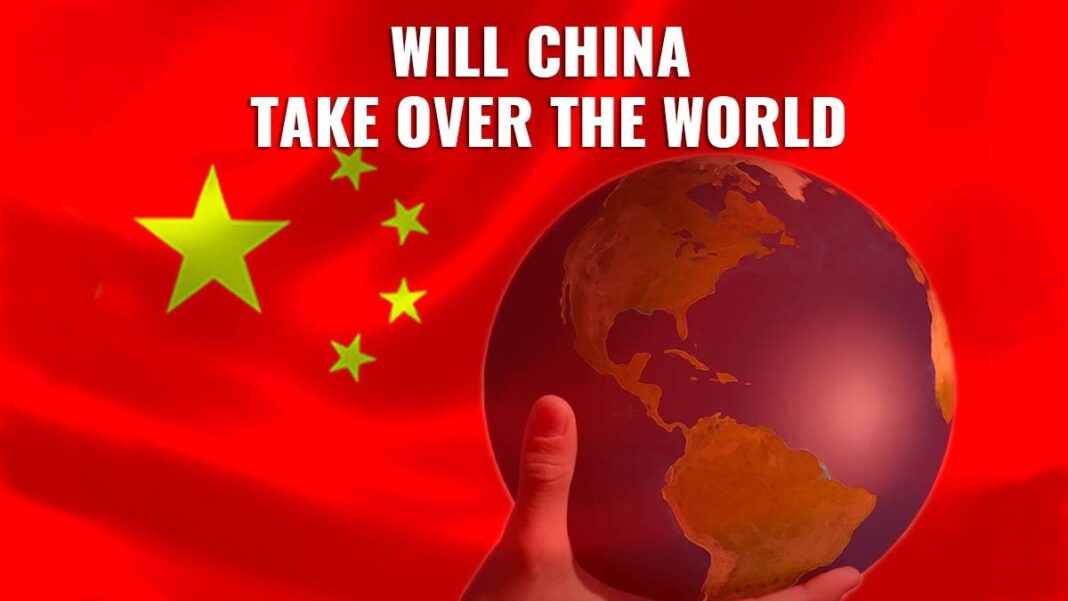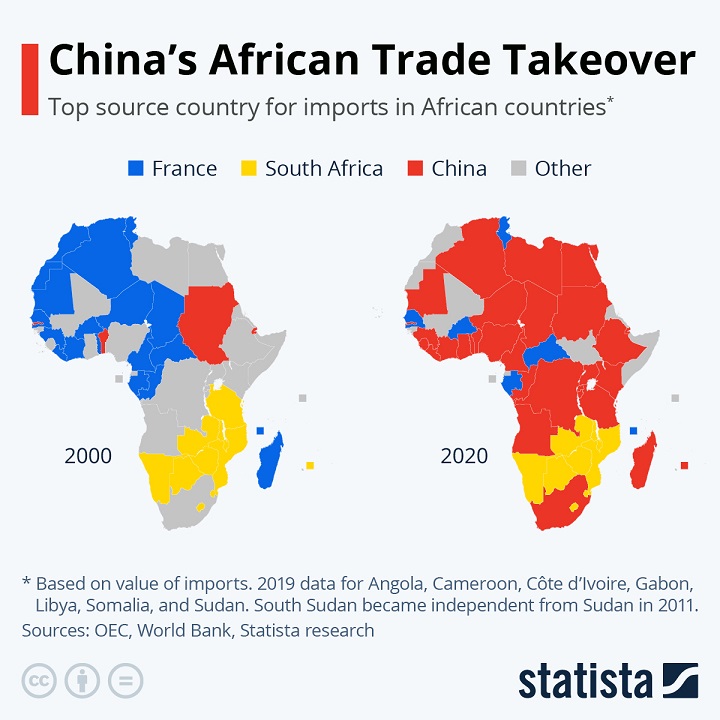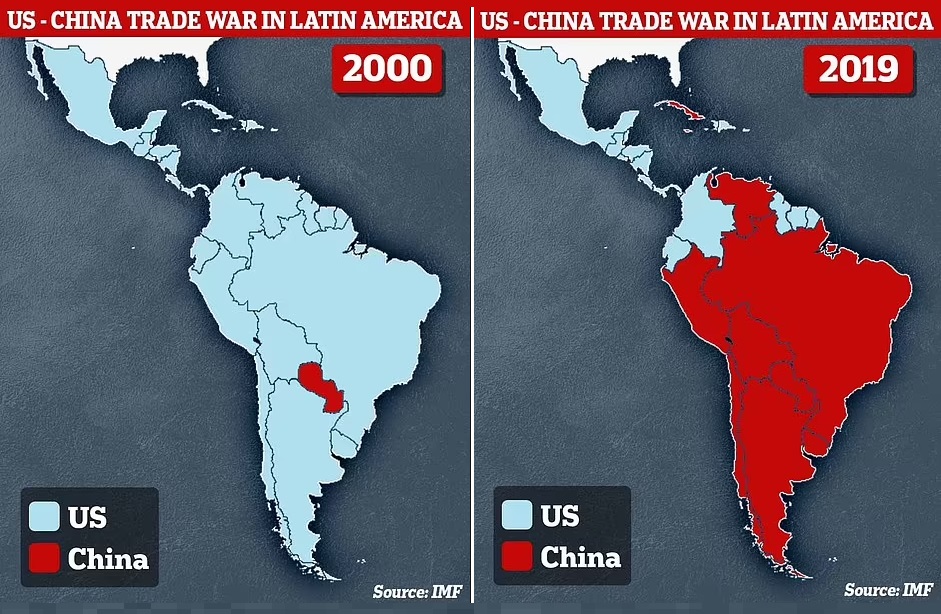Xi Jinping’s China is displaying a superpower’s ambition. Only a few years ago, many American observers still hoped that China would reconcile itself to a supporting role in the liberal international order or would pose – at most – a challenge to US influence in the Western Pacific. The conventional wisdom was that China would seek an expanded regional role – and a reduced US role – but would defer to the distant future any global ambitions. However, the signs that China is gearing up to contest America’s global leadership are unmistakable and ubiquitous.
We asked, “Is China taking over the rest of the world?” The “rest of the world” as in the world that does not involve the current dominant areas such as the US, Europe, and China itself, which make up about 60% of the global GDP. The less dominant areas of the world will be the up-and-coming growth areas, and hence those who get in early could eventually dominate the world. Let’s examine what China has been up to in the “rest of the world.”
Is China taking over Africa?
In 2000, China was the leading source of imports for only a few African countries: Sudan, Gambia, Benin, and Djibouti. But as the infographic below shows (learn more here), 20 years later, the Asian superpower is now the top supplier of goods for over 30 nations on the continent.
The China-Africa connection has been fostered intensely over the last two decades. As reported by Statista’s research expert for Angola, Kenya, and Tanzania, Julia Faria: “The value of Chinese exports to African countries jumped from five billion US dollars to 110 billion.” It’s not just a one-way street, however: “African exports to China also increased, though at a slower pace. In 2020, the total export value to China reached nearly 62 billion US dollars, a slowdown caused by the Covid-19 pandemic. The growing Chinese demand for raw materials has found a strong supplier in Africa, with exports valued at around 14 billion US dollars in 2020.”
Far beyond being a simple trade relationship, China has been the largest foreign investor in Africa for several years now. Additionally, the country was the source of 25% of infrastructure funding in the continent in 2018 – the second highest share that year and only second to the financial commitments from African national governments.
Is China taking over South America?
China has inked a new deal with leaders in Latin America and the Caribbean to deepen ties across almost all areas of society in what one analyst likened to a plot to “take over” the region. China has even pledged to build schools and fund classes teaching the Chinese language and “culture,” though such institutions have been criticized elsewhere for pushing state propaganda and limiting academic freedom.
China has pumped cheap money into Latin America and the Caribbean for years, indebting governments and effectively buying influence. Where it has been unable to loan or buy, it has used armies of cheap workers to build key infrastructure projects, giving it outsized influence. And those ties are set to deepen with the signing of a new cooperation pact.
It comes off the back of decades of Chinese investment and development in Latin America and the Caribbean, which has seen hundreds of billions of dollars poured into the region to build critical infrastructure such as ports, roads, and power plants in what many believe is an attempt to buy power and influence in America’s back yard. See this Chinese trend over the last several decades in the chart below and learn more here.
It is clear from this data China is becoming dominant in the “rest of the world.” But what about the modern “world” – the US and EU? Some believe, in the US, for example, that China has already infiltrated modern Western countries (public and private organizations) through nefarious means (bribes, blackmail, etc…). So is China taking over not only the “rest of the world” but the entire world?
This notion of China’s increasing world dominance should be taken very seriously. Perhaps all those cheap Chinese products we like to buy may have a higher cost than one really understands.
By Tom Williams








